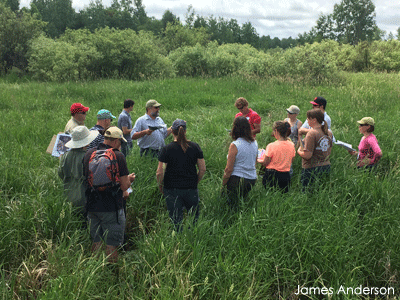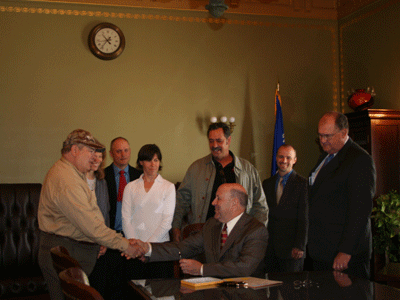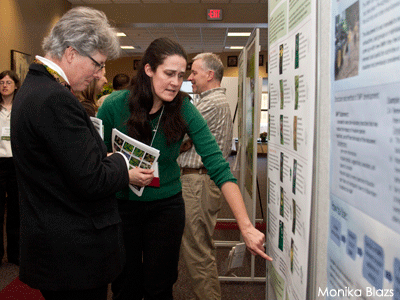
How we work
We protect wetlands through education and advocacy
We promote the importance and value of wetlands for watershed health, wildlife habitat, and other natural benefits through targeted, field-based outreach to communities, decision makers, and landowners. When people understand how wetlands can provide solutions to the local water and watershed challenges they face (like flooding and poor water quality), they are better equipped to take action. Our approach is to connect those who have influence over land use decisions with the knowledge, tools, and resources they need to protect their local wetlands and watersheds, and to encourage them to connect with others facing similar challenges. We believe that wetland conservation is most effective when people learn from each other, neighbor to neighbor.

We promote strong wetland conservation policies and programs
Landscape level wetland conservation requires sound wetland policy at all levels. Through our policy and outreach programs, we work to sustain and expand policies and programs that promote wetland conservation and restoration. Because effective wetland policy must be rooted in good wetland science, we aim to provide the science-policy link for decision makers at every level. We also work with people who are directly involved in land use decisions, including counties, tribes, communities, and landowners.

We advance wetland science and practices
Good wetland science is essential for effective wetland policy and management. We seek to promote and advance the latest and best wetland science and practices through all of our work. Our annual Wetland Science Conference is the cornerstone of our efforts to advance wetland science and practices. The conference, which in 2015 celebrated its 20th anniversary, is a multi-day event with speakers, field trips, and workshops that attracts hundreds of people annually from Wisconsin, the Upper Midwest, the Great Lakes region, and beyond. Not only is the conference important for sharing and discussing the latest wetland science, it also builds connections, relationships, and partnerships that make our wetland professional community more effective at wetland conservation.
“There’s no way you won’t come out of this conference without relevant connections, ideas, inspiration, and contacts.” – Previous conference attendee

